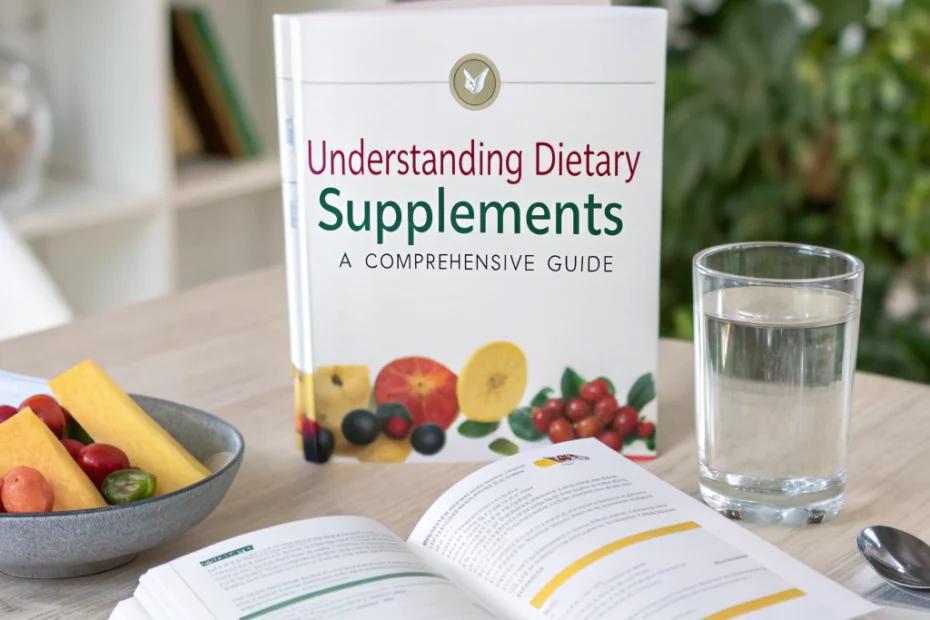Quick Take
Dietary supplements are products designed to add nutrients to your diet or to lower your risk of health problems, such as osteoporosis or arthritis. They come in various forms, including tablets, capsules, powders, and liquids. While they can provide health benefits, it’s important to understand how to use them effectively and safely.
Supplements can include vitamins, minerals, herbs, amino acids, and enzymes. They are commonly used to fill nutritional gaps, support specific health goals, or enhance overall well-being. However, not all supplements are created equal, and their effectiveness can vary based on individual needs and health conditions.
How to Choose
Choosing the right dietary supplement can be overwhelming given the vast array of options available. Here are some tips to help you make informed decisions:
- Identify Your Needs: Determine what you want to achieve with supplements. Are you looking to boost your immune system, improve bone health, or support heart health?
- Research Ingredients: Look for supplements that contain ingredients backed by scientific research. Check for clinical studies that support their efficacy.
- Check for Quality: Choose products from reputable manufacturers that follow good manufacturing practices (GMP).
- Read Labels Carefully: Pay attention to the dosage, serving size, and any additional ingredients that might cause allergies or interactions.
- Consult a Healthcare Professional: Before starting any supplement, it’s wise to discuss it with your doctor, especially if you have underlying health conditions or are taking other medications.
Safety & Setup
Safety is paramount when it comes to dietary supplements. Here are some safety tips:
- Be Aware of Interactions: Supplements can interact with prescription medications or other supplements, potentially causing harmful effects.
- Start with Low Doses: Begin with the lowest recommended dose to see how your body reacts, then adjust as needed.
- Monitor for Side Effects: Keep an eye out for any adverse reactions such as nausea, headaches, or allergic reactions.
- Pregnancy and Nursing: If you are pregnant or breastfeeding, consult your healthcare provider before taking any supplements.
- Age Considerations: Children and older adults may have different nutritional needs and sensitivities, so tailor supplements accordingly.
Core Pillars
The core pillars of using dietary supplements effectively include understanding their role, ensuring quality, and maintaining a balanced diet. Supplements are not a substitute for a healthy diet but can complement it by providing essential nutrients that may be lacking.
Focus on the following pillars:
- Balanced Nutrition: Aim to get most of your nutrients from a varied and balanced diet rich in fruits, vegetables, whole grains, and lean proteins.
- Quality Assurance: Verify that the supplements are tested for purity and potency by third-party organizations.
- Personalization: Tailor your supplement regimen to your specific health goals and nutritional needs.
Storage & Quality Tips
Proper storage of supplements is crucial to maintain their effectiveness. Here are some tips:
- Store in a Cool, Dry Place: Heat and moisture can degrade supplements, so keep them in a cool, dry environment.
- Check Expiration Dates: Always check the expiration date before use, as expired supplements may lose potency.
- Keep Out of Reach of Children: Store supplements in a safe place to prevent accidental ingestion by children.
- Use Original Containers: Keep supplements in their original containers to avoid confusion and ensure you have access to important information like dosage and expiration date.
Comparison with Alternatives
When considering dietary supplements, it’s important to compare them with other alternatives such as whole foods and fortified foods. Whole foods provide a complex nutritional profile that supplements alone cannot match. For example, an orange provides vitamin C along with fiber and other beneficial compounds.
Fortified foods, like certain cereals and milk, have added nutrients and can be a convenient way to increase your intake of specific vitamins and minerals. However, supplements can be beneficial for those with specific deficiencies or dietary restrictions.
FAQs
Q: Can I take multiple supplements at once?
A: It’s possible to take multiple supplements, but it’s important to ensure they don’t interact negatively with each other or with any medications you’re taking. Consulting a healthcare professional is recommended.
Q: Are natural supplements safer than synthetic ones?
A: Not necessarily. Both natural and synthetic supplements can be safe or harmful depending on their quality and how they are used. Always choose high-quality products and consult with a healthcare provider.
Q: How long does it take to see results from supplements?
A: The time it takes to see results can vary depending on the supplement and individual factors such as metabolism and health status. Some may notice changes within a few weeks, while others may take longer.
What to Do Next
Now that you have a better understanding of dietary supplements, consider evaluating your current diet and health goals. Identify any nutritional gaps and consult with a healthcare professional to determine if supplements could be beneficial for you. Remember, supplements are just one part of a healthy lifestyle, so continue to prioritize a balanced diet and regular exercise.
Disclaimer: Always consult a qualified healthcare professional before using any supplement.
